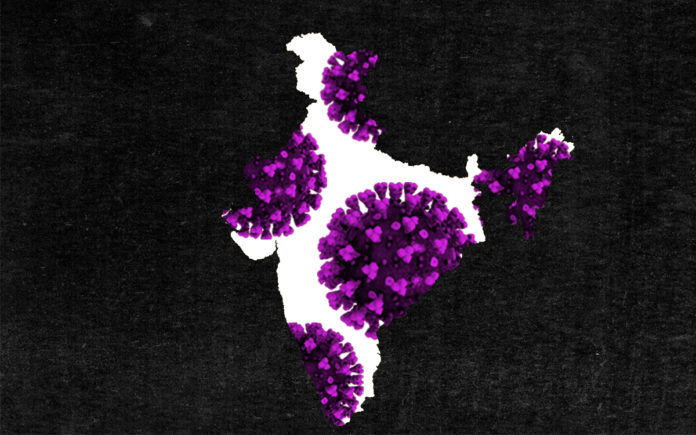
This week, the U.K. reported 103 cases of a coronavirus variant that originated in India. Indian scientists detected the new variant between December 2020 and March this year in Maharashtra, which has become a hotspot of the second Covid19 wave in India. They labeled it B.1.617. The variant has been a mystery within and outside the country because of linked mutations so far, and the colloquialism ‘Indian variant’ is quickly catching on.
But the label is an extension of a problematic pattern: of naming variant nomenclatures after the origin country’s name. The ‘U.K.,’ ‘Brazilian,’ and ‘South African’ variants have become popular ways to talk about coronavirus variants that originate in a particular country. But the impulse to label viruses and pathogens according to their suspected geographic origins is harmful; it leads to short-sighted policymaking, encourages national cover-ups, and encourages discriminatory attitudes and behaviors.
One may argue that objections are reading too much into a variant name. The geographic-centered nomenclature is definitely convenient for governments usage to explain what’s happening or for media outlets to report on the dynamic health crisis. It makes it easier to define and break down the complexities of coronavirus, or for any other epidemic and pandemic.
Related on The Swaddle:
How Covid19 Variants Are Making It Even More Critical to Vaccinate Everyone, Quickly
The tradition is also not a novel occurrence: the Spanish flu and Middle Eastern respiratory syndrome are storied in public health history. The Zika virus is named after Uganda’s Zika forest where it was first detected; Ebola finds its roots in a river in the Democratic Republic of the Congo where the virus was first identified.
But history falls short in justifying a labeling pattern that has a detrimental social impact. For one, naming coronavirus variants after nationalities lulls countries into shaping myopic health policies. Banning flights or imposing quarantine measures on arrivals from that particular country is the next reasonable step — but the problem is when these restrictions end up being the only precautionary measures. The temporary sense of security responds to an immediate wave of paranoia and fear, but strategically it doesn’t meet the mark. Early in the pandemic, then-U.S. President Donald Trump banned travel to countries that had large Covid19 outbreaks, such as Italy, South Korea, and China; other European nations imposed similar guidelines. But America’s growing Covid19 numbers and third Covid19 waves in Europe demonstrate that this management tactic is not a holistic response.
Another concern is that such nomenclature impedes national health responses. By December 2019, the U.S. and some other countries had already started terming the novel coronavirus as the ‘China’ or ‘Chinese’ virus. The shame of being the origin country might result in domestic cover-ups, underplaying deaths, and fudging data — making it hard to gauge the scale of the crisis, experts say. A CNN report in December last year revealed that China underreported Covid19 cases, gave the world “optimistic data,” and failed to disclose an earlier influenza outbreak in another province in December 2019. This, along with the waning public healthcare system and mismanagement, resulted in the severe outbreak in Wuhan.
The most concerning impact of labeling diseases or outbreaks based on nationalities is that it triggers misinformation, prejudice against racial and ethnic groups, and peels back the focus from science-based interventions. The novel coronavirus and its origin in China have had a ruinous impact on Asian nationals in other countries — anti-Asian crime and hate speech have risen in the U.S., Europe, and other Western nations since the pandemic began. By March 2021, major U.S. cities recorded a 150% rise in hate crimes against Asian Americans. The pandemic has unleashed a wave of racism and discrimination. Katie Baca, a science historian at Harvard University, and Susana Bejar, an internal medicine physician, explain why pathogen naming has implications. They liken the geography-based naming to the way HIV was called the “gay virus” until 1982; this not only exacerbated stigma but also made diagnosis and recovery impossible.
But as cognizance grows, media platforms and public health officials can take the first step in setting the right tone. When referring to new strains or variants, an effort could be made to use technical names in the communique: B.1.1.7 for the ‘U.K. variant,’ B.1.135 for the ‘South African variant.’ The country of origin such as the U.K., South Africa, Brazil, or now India, could be mentioned in continuation to make understanding easier — something like “the variant spreading in the U.K.”
Being considerate and conscious of the way we talk about new coronavirus variants is an old conversation, but one that will stand out in urgency for Indian nationals now. The variant found in India is linked to two unusual mutations — E484Q and L425R — and much has already been speculated about this ‘double mutant’ variant. It is still unknown how much of this variant has contributed to the second surge in India, which has skyrocketed Covid19 cases and deaths and left the health system in chaos.
“Stigma causes more than just hurt feelings,” Baca and Bejar remind us. “It kills.”








